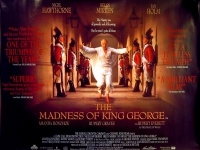In 1936, Owens arrived in Berlin to compete for the United States in the Summer Olympics. Adolf Hitler was using the games to show the world a resurgent Nazi Germany. He and other government officials had high hopes that German athletes would dominate the games with victories (the German athletes achieved a "top of the table" medal haul). Meanwhile, Nazi propaganda promoted concepts of "Aryan racial superiority" and depicted ethnic Africans as inferior.
Owens surprised many by winning four gold medals: On August 3, 1936 he won the 100m sprint, defeating Ralph Metcalfe; on August 4, the long jump (later crediting friendly and helpful advice from Luz Long, the German competitor he ultimately defeated); on August 5, the 200m sprint; and, after he was added to the 4 x 100 m relay team, he won his fourth on August 9 (a performance not equaled until Carl Lewis won gold medals in the same events at the 1984 Summer Olympics).
Just before the competitions, Owens was visited in the Olympic village by Adi Dassler, the founder of the Adidas athletic shoe company. He persuaded Owens to use Adidas shoes, the first sponsorship for a male African-American athlete.
The long-jump victory is documented, along with many other 1936 events, in the 1938 film Olympia by Leni Riefenstahl.
On the first day, Hitler shook hands only with the German victors and then left the stadium. Olympic committee officials insisted Hitler greet every medalist or none at all. Hitler opted for the latter and skipped all further medal presentations. On reports that Hitler had deliberately avoided acknowledging his victories, and had refused to shake his hand, Owens recounted:
When I passed the Chancellor he arose, waved his hand at me, and I waved back at him. I think the writers showed bad taste in criticizing the man of the hour in Germany.
Hitler expressed his feelings about Owens and Africans in private. Albert Speer, Hitler's architect and later war armaments minister, recollected:
Each of the German victories, and there were a surprising number of these, made him happy, but he was highly annoyed by the series of triumphs by the marvelous colored American runner, Jesse Owens. People whose antecedents came from the jungle were primitive, Hitler said with a shrug; their physiques were stronger than those of civilized whites and hence should be excluded from future games.
Owens was cheered enthusiastically by 110,000 people in Berlin's Olympic Stadium; on the street, Germans sought his autograph. Owens was allowed to travel with and stay in the same hotels as whites, while at the time blacks in many parts of the United States were denied equal rights. After a New York City ticker-tape parade of Fifth Avenue in his honor, Owens had to ride the freight elevator at the Waldorf-Astoria to reach the reception honoring him.
Owens said, "Hitler didn't snub me—it was FDR who snubbed me. The president didn't even send me a telegram." Jesse Owens was never invited to the White House nor bestowed honors by presidents Franklin D. Roosevelt (FDR) or his successor Harry S. Truman during their terms. In 1955, President Dwight D. Eisenhower honored Owens by naming him an "Ambassador of Sports."
However, in August 2009, the Daily Telegraph found Siegfried Mischner, aged 83, who admitted that Hitler did shake hands with Jesse Owens afterall in private.
Comment
You must be logged in to comment. Register to create an account.
Next movie
#221 The Madness of King George
24 April 2025, 3:00 pm
I’m the King of England! A man can have no better conceit of himself than that!

